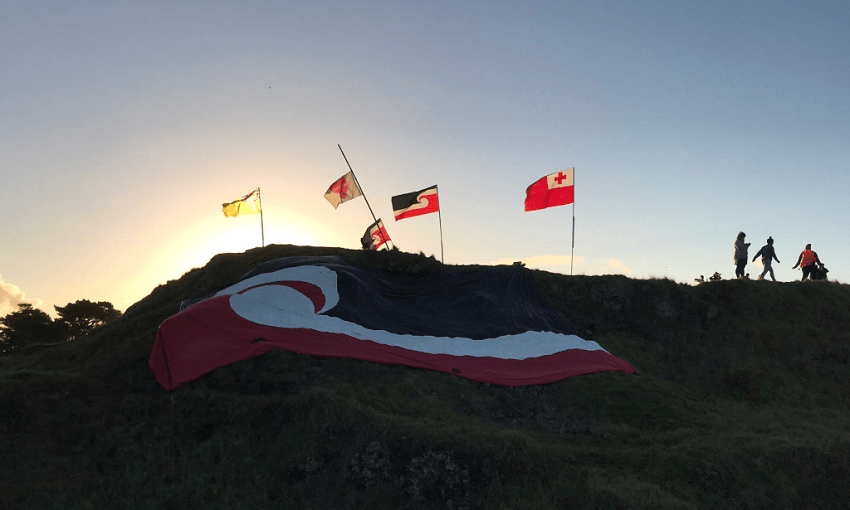Finally, New Zealand history will become a compulsory school subject. So what’s so good about that?
New Zealand history will be a compulsory primary and secondary school subject within the next three years, Jacinda Ardern announced today. The decision has proved popular to campaigners and academics like Vincent O’Malley who have battled for years to change the curriculum. It’s also a significant moment for the students of Otorohanga College, who marched on parliament way back in 2015.
The children’s commissioner also celebrated the decision, saying “Rangatahi are not just leaders of tomorrow, they are leading now. We applaud all the young people who pushed for this. We’ve heard this call for a long time through our work as well. Knowing the true history of Aotearoa can only make us stronger now and for future generations.”
The history of New Zealand? Isn’t that a Michael King book?
Yes, a very good one. However, it’s not compulsory reading in schools. From 2022, schools will be expected to cover:
- The arrival of Māori to Aotearoa New Zealand
- First encounters and early colonial history of Aotearoa New Zealand
- Te Tiriti o Waitangi / Treaty of Waitangi and its history
- Colonisation of, and immigration to, Aotearoa New Zealand, including the New Zealand Wars.
- Evolving national identity of Aotearoa New Zealand in the late 19th and early 20th Centuries
- Aotearoa New Zealand’s role in the Pacific
- Aotearoa New Zealand in the late 20th century and evolution of a national identity with cultural plurality.
Great, but who will teach it?
“The Ministry will call on historical and curriculum experts, iwi and mana whenua, Pacific communities, students and ākonga, parents and whānau, and other groups with a strong interest in shaping how New Zealand history is taught,” education minister Chris Hipkins said.
“Initial work to be done in the 2019/2020 financial year will be funded through Ministry of Education baselines. This means that there is no initial additional funding required at this stage.”
Lynda Stuart, president of New Zealand’s largest education union, said she welcomed the announcement which was ‘well overdue’.
“It is something we have been advocating for some time,” she said. “Our children need to know the true history of Aotearoa if they are to grow up to be informed citizens.”
Stuart emphasised it will be important teachers are supported in developing a curriculum. Fortunately, there are existing resources like Toby Morris’ excellent Te Tiriti explainer already available online.
The development of a curriculum could prove contentious, however. It’s a cliché that history is written by the victors, and as our understanding of power dynamics evolves, the prioritisation of minority voices will be a crucial component of a proper historic record.
What’s the point?
History is nothing less than the sum total of human experience. It’s the greatest tool we have for predicting outcomes and behaviours. It’s one of the few things that can give some semblance of sense to the maelstrom of life. It places us in a greater narrative, contextualising our lives and helping to answer the fundamental question of why.
It’s a powerful antidote to racism, too. An understanding of the history of this country goes a long way to explaining just why the Māori prison population is so high, or why movements like Ihumātao galvanise te ao Māori. It teaches us how our complex socioeconomic inequities came to be, and why things like Māori Language Week exist. It teaches us why a potential pardon of Tūhoe prophet Rua Kēnana brought MPs to tears in the house today.
History can light a fire. It shows the how of capital, and the injustices inherent in our society. It explains how stolen land enriched colonialists, and how old money has stratified and continues to stratify New Zealand.
And the study of history more broadly is also an excellent way to learn critical thinking. In an era of fake news and disinformation, knowing what is true and how to parse facts from bullshit is imperative to an informed population. It makes us better, and surely, that’s what education is about.
